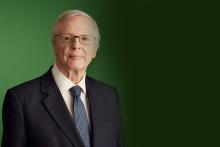Recruiting and retaining top family enterprise leadership talent

- Family offices often fail to define the role and its long-term goals, leading to mismatched hires.
- Lack of NextGen involvement can raise red flags for potential hires.
- A winning compensation package aligns incentives with family goals for long-term success.
Increased access to information and an intensified competitive market are two key drivers requiring family enterprises to implement more formalised, clearly defined strategies in recruiting and retaining key talent. What are the ingredients to getting it right and avoiding costly mistakes?

Why recruiting efforts fail
Successfully attracting and retaining the right leadership talent is critical to the Family Office achieving its long-term goals and objectives and strengthening family sustainability. In the absence of a proven process, however, and an awareness of desired characteristics, many recruiting efforts fail. The top two reasons a new hire will fail to launch are:
- The Family Office finds someone they like and trust, but the individual hired does not have the requisite skills and competencies to be successful in the position because the job was not clearly defined in the context of 10-15 years (the term most offices are seeking with their executives.)
- The Family Office hires a “rock star” from another enterprise in terms of their perceived requisite skills but they fail because they are not the right culture fit. While the majority of offices are looking for someone with a particular skill set and experience, in fact, culture fit with the family is paramount for success.
The Pivotal Role of the Expert Generalist
Every Family Office needs an expert generalist leading the office – an individual who has knowledge across the full spectrum of wealth management disciplines. These include but are not limited to finance, accounting, tax, investments, estate planning and philanthropy with an understanding of the interconnectivity between the disciplines – and how each relates to every decision across the entire horizontal spectrum. The individual must have peripheral vision across all functional areas and have the ability to anticipate repercussions of how decisions made in one area will affect others. Keeping everything in sync and optimized is a true balancing act – and a necessary one for success.
In addition, the leader will need to coordinate all outside advisors and providers to be sure their efforts are in harmony. These advisors, while specialists in their own respective disciplines are not inherently acquainted with other expert's efforts on the Family Office's behalf. The expert generalist must look deeply into each vertical to know when advisors must coordinate with one another to successfully accomplish objectives.
Designing a proper compensation plan for executive leaders
Compensation is a hot topic at every Family Office forum and event. The right compensation package can immediately impact the successful achievement of goals and objectives for the family. The wrong one will often result in losing key leaders. Since incentives influence behaviour, it is imperative that incentives align with family goals and objectives. Be diligent about how you go about benchmarking and getting valid market data. It is critically important to base compensation on job content, not title. We strongly advise families to hire a specialised consultant to advise them. An expert in Family Office compensation will help structure packages which benefit both the Family Office and the prospective candidate. This goes a long way to demonstrate confidence and fairness in negotiating for both parties.
Who should serve on a search committee?
The importance of next generation involvement on family boards and committees cannot be overstated. Rising generations are the future and a key factor in succession planning. There are several strategies to consider that encourage NextGen engagement. From the standpoint of recruiting the ideal prospective executive, keep in mind that the evaluation is a two-way street. It is a serious decision for them as well as the family.
If a candidate is anticipating a 10–15-year commitment, they cannot help but observe who is part of the governance process – and who is missing. If the candidate is greeted by a committee of 75-year-olds, they will wonder about who is in line to follow the established members and why no one of that generation is represented. They are evaluating sustainability, and who might be responsible for future mandates and their performance. The fear of being replaced in the future is potentially a high-risk situation for the candidate. If a candidate doesn’t see orderly governance, and anticipated transitions to the next generation, it might not breed confidence in their future with a Family Office.
Best Practices: Retention
Recruiting is just the first step. Once a family office finds an ideal leader, they must consider how they will stimulate and motivate that individual. Compensation is important but factors such as a clear mandate, metrics for success, and apportioning resources and authority commensurate with accountability are crucial to both attracting and retaining talent. Equally important are sound governance, effective succession planning and generational transitions. An effective performance management plan defines expectations and metrics to be used to evaluate success that are objective, results-driven, quantitative and qualitative. Performance expectations and metrics must be aligned with family philosophies, values, and objectives. They must also be mutually agreed upon and clearly communicated.
The onboarding plan is designed to help the new leader become acclimated to their new role, to the family and family office culture, and to the family’s advisors. The goal is to help the new family office leader build relationships and achieve results quickly and effectively. Creating early wins for the new hire promotes credibility. Commitment to the success of the new leader and to creating an environment to foster success is critical.
Linda Mack is the Founder and President of Mack International, LLC, the premier boutique firm that specialises in providing retained C-suite executive search and strategic human capital consulting solutions to family offices, investment firms and enterprise clients on a national and international basis. Clients range from first generation business enterprise-owning wealth creators through multi-generational families of six or more generations. Mack International clients also include multi-client family offices and select investment and wealth management firms that serve family office and ultra-high net worth clients.






